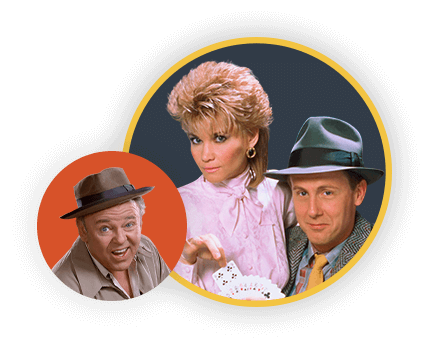10 fascinating facts about the late Doris Day

A megastar of song, cinema and the small screen, Doris Day is an American icon. The Cincinnati-born talent transitioned from pop singer in the 1940s to movie star in the 1950s to television headliner in the 1960s.
The bright and upbeat blonde was known for classics like Pillow Talk and The Man Who Knew Too Much, not to mention her compassion towards animals.
Let's shine some more light on Day.

She was named after a song.
How fitting that a pop idol with 21 Billboard Top 10 hits would be named for a song. Born Doris Mary Ann Kappelhoff, the young singer earned her shorter, sunnier stage name from band leader Barney Rapp, who dug her take on "Day After Day."

She at first refused to sing "Que Sera, Sera."
We can perhaps thank Alfred Hitchcock and Paramount Pictures for Day's signature tune. The immortal song was written for the director's 1956 thriller The Man Who Knew Too Much, which cast Day opposite Jimmy Stewart. Day initially refused to sing the number, deeming it a "children's song." Under studio pressure, she reportedly did it in one take and remarked, "That's the last time you'll ever hear that song." The rest is history — and "Que Sera, Sera" became the theme song to her television series.

Rock Hudson used a sling to help carry Day at the end of 'Pillow Talk.'
The famous scene in which Rock Hudson carries Doris Day in her pajamas down the street was taxing on the leading man. Multiple takes of carrying a person around would sap anyone. So the crew devised a hidden harness that hung from Hudson's shoulders to distribute the load. Some claim you can spot the rigging in fleeting moments of the scene.

She was unknowningly contracted into doing her television series.
Day had little interest in moving to the small screen. However, upon the death of her third husband, Martin Melcher, the actress discovered she was both deeply in debt and signed on to do a television show and series of specials without her knowledge. "All without anyone ever asking me," she told OK! Magazine in an interview.

'The Doris Day Show' changed radically between seasons.
Originally airing from 1968 to 1973, The Doris Day Show straddled two eras of television, as the industry shifted from camp and rural comedies to urban realism. At the start of the series, her character lives on a California ranch with her father and children. In season two, the family moves to San Francisco, where Day works as a secretary. In season four, however, Day is suddenly a single career woman, à la Mary Tyler Moore. Her children, dad and dog had all disappeared without a trace.

Denver Pyle, who portrayed Doris' father on the series, was a couple years older than the star.
Pyle, perhaps best known as Jesse on The Dukes of Hazzard, portrayed Day's father in the early seasons of The Doris Day Show. The actor was born on Christmas Day in 1920, not long before Day. Hollywood!

She was afraid of flying.
Despite playing a flight attendant in Julie, pictured here, Day dreaded airplanes. The phobia even caused her to turn down some award ceremonies.

She turned down the role of Mrs. Robinson in 'The Graduate.'
Day's chaste image might have been very different had she taken the role of Dustin Hoffman's temptress in the classic film.

She is mentioned in songs by Wham!, Billy Joel, the Beatles and Elton John.
Day's influence in pop music runs well beyond her own impressive discography. The Beatles sang of "the BBC, B.B. King and Doris Day" in "Dig It." George Michael proclaimed, "You make the sun shine brighter than Doris Day," in the Wham! smash "Wake Me Up Before You Go-Go." Billly Joel kicked off his litany of cultural references in "We Didn't Start the Fire" with, "Harry Truman, Doris Day, Red China, Johnnie Ray." Elton John also rattles off a list of celebrities in "Wrap Her Up," toasting, "Brigitte Bardot, Doris Day, Billie Jean…" The actress is also mentioned in songs by Ringo Starr, dance giant Underworld and Dutch ska band Doe Maar, to name a few.
Image: Discogs

Her son was a legendary rock & roll producer.
Day's only child, Terry Melcher made a name for himself producing California rock legends like the Byrds and the Beach Boys, as well as hits for Paul Revere & The Raiders. He manned the boards on both "Mr. Tambourine Man" and "Kokomo." Melcher was also known for his links to the Charles Manson story, as the homicidal commune leader auditioned for the producer, meeting in the house that would eventually become the site of the Manson Family murders. Melcher passed away in 2004.




